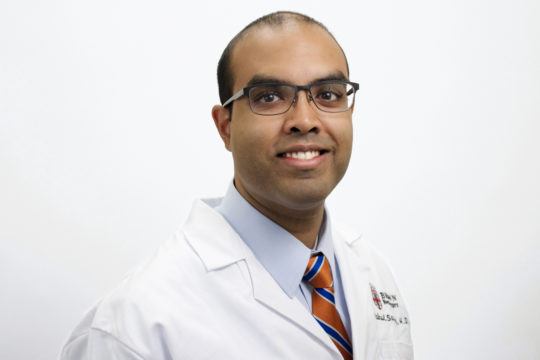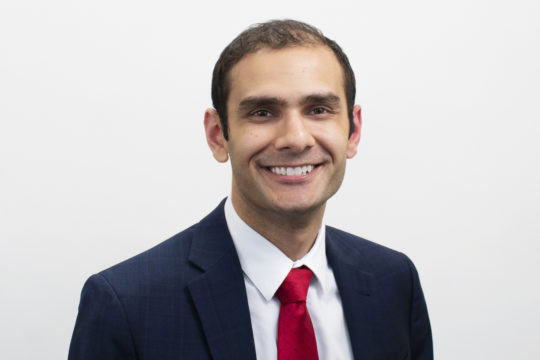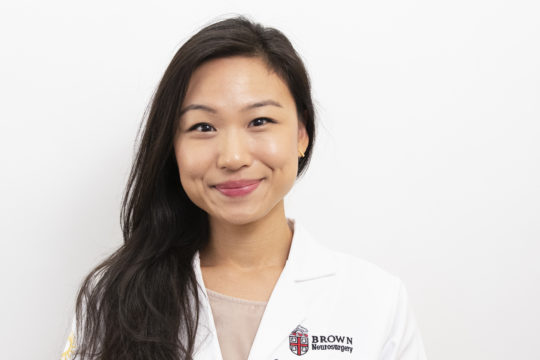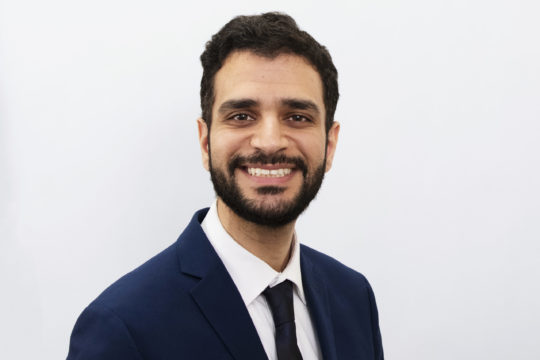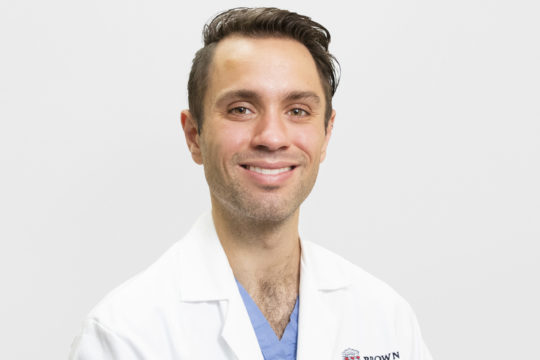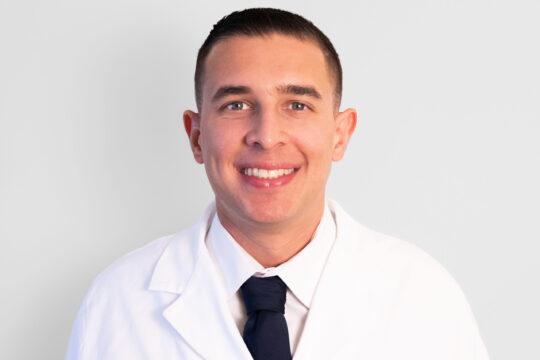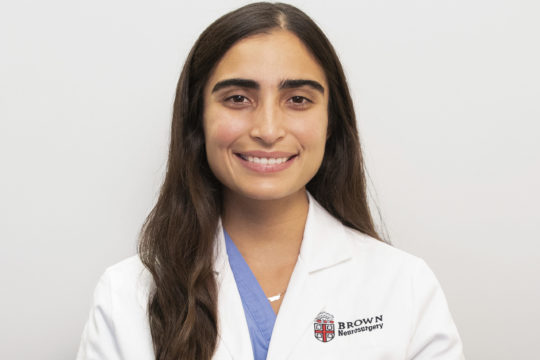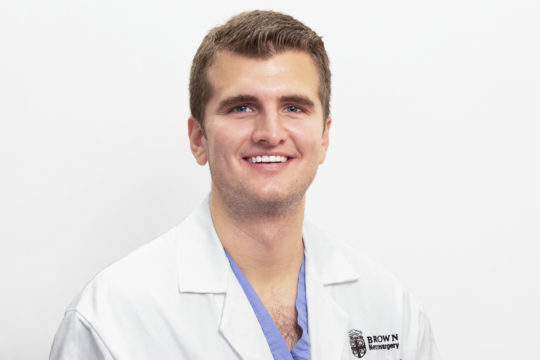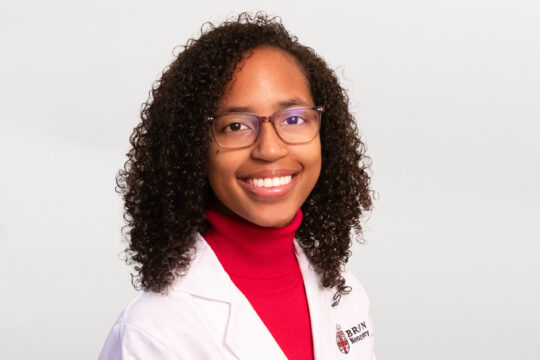Residency Program
Residency Overview Video 2020
Overview & Objectives
Overview
Neurosurgery residency training at The Warren Alpert Medical School of Brown University takes place at Rhode Island Hospital and Hasbro Children’s Hospital. Curtis E. Doberstein, MD is the vice-chair of the department and the director of the neurosurgery residency program. Resident training at Rhode Island Hospital and Hasbro Children’s Hospital provides experience in all areas of neurosurgery including:
- pediatric neurosurgery, including fetal neurosurgery
- neurosurgical oncology, including endoscopic skull-base surgery and Gamma Knife radiosurgery
- cerebrovascular and complex skull base neurosurgery
- complex and minimally invasive spine surgery for traumatic and degenerative conditions
- complex spine surgery for spinal tumors
- functional, epilepsy and psychiatric neurosurgery, including focused ultrasound
- endovascular neurosurgery
- peripheral nerve surgery
The Brown Neurosurgery Residency Program currently matches 2 residents per year, and is a 7-year program.
The medical school’s Department of Neurosurgery works closely with colleagues in neurology, neuropathology, neuroradiology, interventional radiology, neuroscience, and pediatrics.
Residents gain critical care experience in the neurosurgical critical care unit (NCCU), the trauma intensive care unit (TICU), the pediatric intensive care unit (PICU), and the surgical intensive care unit (SICU). They may conduct research at any of the seven Brown-affiliated hospitals or at Brown University and the Warren Alpert Medical School.
Objectives
The Warren Alpert Medical School / Rhode Island Hospital Residency Program in Neurosurgery trains residents in the operative and non-operative evaluation, treatment, and rehabilitation of patients with disorders of the nervous system. In addition, it cultivates their research potential and teaching skills.
Our program prepares residents to:
• demonstrate competence in the surgical techniques required of board-certified neurosurgeons
• make sound clinical, ethical, and legal decisions
• collaborate effectively with other health-care professionals
• teach patients and families of all age groups according to their needs
• value education as a lifelong process
• conduct independent research and evaluate others’ research
• provide cost-effective care to neurosurgical patients and their families
• practice medicine in a way that respects the religious and cultural beliefs of patients and their loved ones
Current Residents
Workload & Call Schedule
We adhere to the ACGME’s duty-hour standards. Consistent with the council’s guidelines, residents spend at least one day out of seven free of clinical responsibilities. All residents, except the chief resident, are on call in the hospital on average every fourth day. The chief resident, who is in charge of the clinical service, takes calls daily from home.
Call Facilities
On the neurosurgical floor, residents have a dedicated call room with sleeping quarters and computers for accessing patient and surgical records as well as a dedicated workroom with eight workstations. There is a small kitchen on the same floor. Rhode Island Hospital’s cafeteria remains open nearly 20 hours a day; and Au Bon Pain bakery-café, located in the hospital and open 24 hours a day.
Evaluating Residents
Residents are formally evaluated by all faculty on a semi-annual basis. Evaluations are reviewed with the resident at a one-on-one meeting with the program director. Residents are also formally evaluated for all rotations, including their research rotation.
Supervision
An attending neurosurgeon is available at all times, if needed, to provide appropriate patient care and supervision. At Rhode Island Hospital, 6:00 am rounds are supervised by the faculty attending on call. Furthermore, residents may ask any attending for a consultation at any time.
About Warren Alpert Medical School
Founded in 1764, Brown became the seventh college in America. Since then, this Ivy League school has attained an impressive record of achievement in the basic and clinical neurosciences; in fact, Brown was one of the first universities to offer an undergraduate major in neuroscience.
In 1973, Brown started its medical education program, which later became known as Brown Medical School. It is known nationwide for its innovative approach to medical education.
The Brown campus sits on a hilltop in Providence, Rhode Island, an historic city of some 170,000 people. Dubbed the “Renaissance City,” Providence offers stunning architecture, a lively arts scene, and gourmet restaurants. Residents can enjoy the state’s scenic beaches and can easily access Boston, approximately 60 minutes north.
